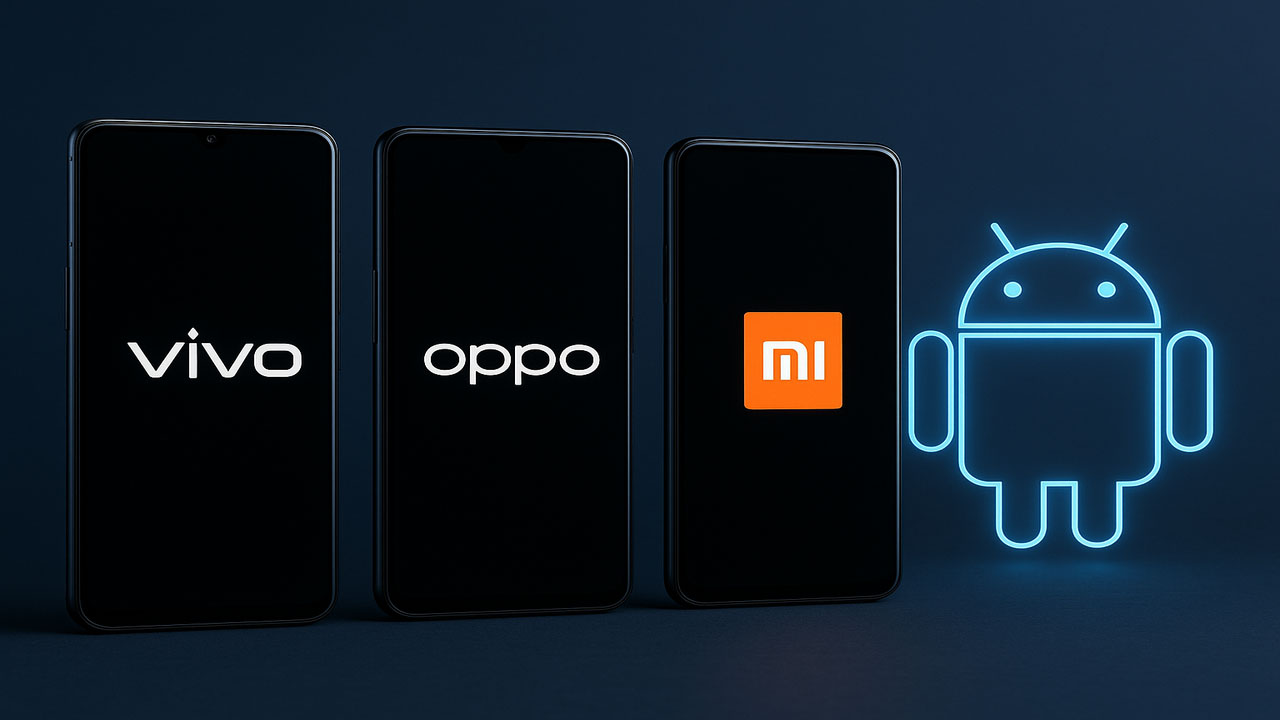
Xiaomi, Oppo and Vivo Innovation Want to Create Replacement Technology for Android
Tech by Android – Xiaomi, Oppo and Vivo Innovation Want to Create Replacement Technology for Android?
The global smartphone landscape may soon witness a major shift. Several Chinese tech giants are rumored to explore a new technology for Android alternatives. According to multiple sources, Xiaomi, Oppo, Vivo, and OnePlus are reportedly collaborating on an independent operating system.
This speculation arises as tensions grow between the United States and China. As reported by Tech by Android, such geopolitical developments influence how companies approach software dependence.
Huawei previously faced significant consequences due to U.S. trade restrictions. When the U.S. blacklisted Huawei, companies like Google were no longer permitted to supply software and hardware support.
“Read more : Solution to Network Problems on Android Phones 2025 Update, Easy to Practice“
Huawei’s restrictions from the U.S. government led to a major turning point in smartphone history. Without access to Google Mobile Services, Huawei could no longer use Google Play, YouTube, Gmail, or Maps.
As a response, Huawei launched its own system, HarmonyOS, to remain competitive in both local and global markets. This bold move inspired other Chinese tech manufacturers to consider similar strategies.
Now, Xiaomi, Oppo, and Vivo seem to be heading in the same direction. If confirmed, this shift could significantly alter the Android market. These companies rank among the top five global smartphone vendors.
At the core of this movement is a desire to reduce dependence on Western technology. A source from techbyandroid.com claims that Xiaomi has already started developing HyperOS 3, an internal operating system.
HyperOS 3 could become the blueprint for a new tech ecosystem. However, it’s unclear whether this platform will maintain compatibility with existing Android applications.
Huawei’s HarmonyOS Next has already moved away from Android. It no longer supports Android apps, signaling a complete departure from Google’s infrastructure.
If Xiaomi, Oppo, and Vivo follow Huawei’s path, the result might be a fragmented global mobile software environment. This could affect app developers, users, and even hardware partners.
Another interesting rumor is that Huawei might play a role in this joint effort. Though details remain unclear, Huawei’s experience could be critical.
Huawei has already developed alternatives like Ark Compiler for app development and Petal Maps as a GPS replacement. These tools demonstrate how China is investing in foundational tech independence.
The possibility of integrating Huawei’s innovations into this new collaboration raises several questions. Will developers need to rebuild apps for the new system? Will it offer enough functionality to replace Android across all markets?
“Read more : Sources of Electromagnetic Radiation, Their Properties and Uses“
If Xiaomi, Oppo, and Vivo successfully develop a replacement technology for Android, the ripple effect will be massive. Global markets will likely witness a shift in developer priorities, app store ecosystems, and user behavior.
While Google still dominates many regions, losing several major OEM partners would challenge its market share. These Chinese brands sell hundreds of millions of units annually, especially in Asia and Europe.
According to Tech by Android, developers may soon need to adapt apps for more than just iOS and Android. Supporting a third platform could become a necessity.
Creating a stable, secure, and user-friendly OS is no small feat. Android took over a decade to refine its ecosystem, user interface, and developer community.
The Chinese brands involved must also address consumer trust. Many users remain loyal to familiar services like Gmail and YouTube.
To attract international users, the new OS must offer compelling alternatives to Google’s core apps. It also needs strong support for gaming, productivity, and social media tools.
Security and privacy are also critical. Users must believe that the system is safe and that their data is protected.
It’s too early to predict whether this new technology for Android replacement will succeed. However, the intent is clear—Chinese smartphone vendors want greater control over their software destiny.
Even if the initial versions target only the Chinese market, global expansion could follow. Huawei’s HarmonyOS is already used in millions of devices, proving there is room for non-Google platforms.
If Xiaomi’s HyperOS 3 succeeds, and if Oppo and Vivo support the initiative, this movement could challenge the Android monopoly. It might also drive innovation, competition, and diversity in the smartphone space.
For now, the world watches closely. What started as a rumor might soon become the most significant shift in mobile technology since Android itself.
As always, Techbyandroid.com will continue to monitor these developments and provide the latest insights into this evolving tech frontier.